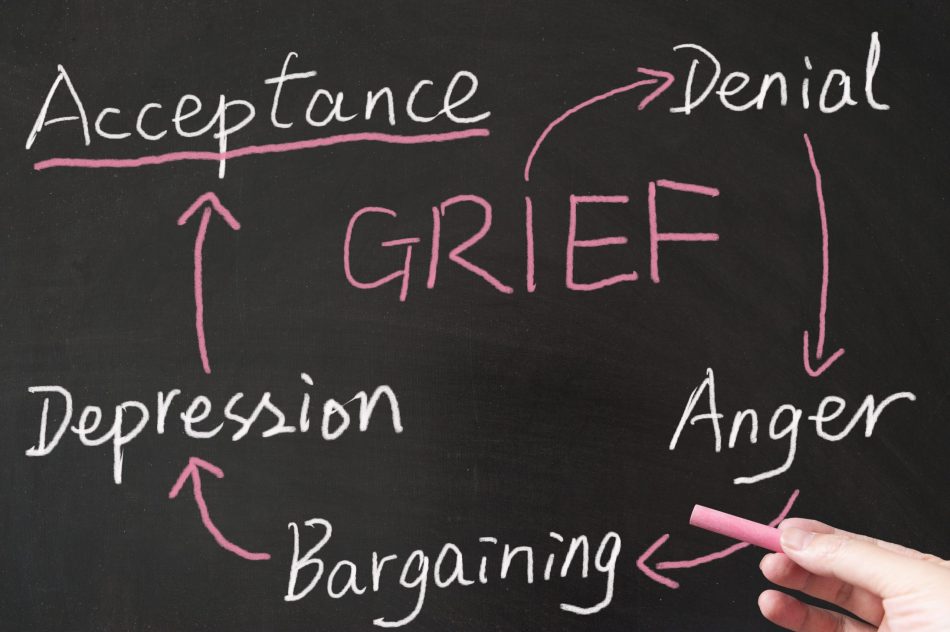We are grieving as a nation and as a world. In the very literal sense, we are grieving the thousands of lives lost to COVID-19, but we are also grieving the loss of our normal lives. The loss of work, school, eating out, hugs with friends, travel, and so much more. Assessing our current situation using the five stages of grief can help us better process and understand the complex and wide-ranging emotions we all have about this global pandemic.
The first stage is denial. When this crisis began, we told ourselves that it would not be as severe where we lived, that it was no worse than the common flu, that young people were not affected. Many of us attempted to continue on with our lives in some semblance of normalcy. Denying the intense feelings that accompany death and disease gives us an initial way of coping with them. We are in shock so we tell ourselves that the issue is not real and that it cannot affect us. However, as reality sets in and shock begins to fade, we are confronted with the reality of the situation.
The second stage is anger. Frustrated customers at the grocery store, aggressive language posted to online platforms, and even confrontation with friends and relatives are all symptoms of this second stage. Anger is normal. You have lost many of the aspects of normal life you enjoy and value. It is okay to feel angry, but eventually, we must track down the source of our anger and let it fade into eventual grief.
The third stage is bargaining. As we come to terms with sadness and loss, it is normal to begin asking yourself what you could have done or could do differently to change the situation. If only we had closed the borders sooner, made more medical supplies, or washed our hands more. These “if only” statements cannot change what has already happened. Do not dwell on potentials of the past, but rather focus on tangible positive changes you can make for the future.
The fourth stage is depression. Grief and sadness are normal. We have lost our way of life, our physical human connection, and maybe even a loved one. Acknowledge these emotions and know that you are not alone in feeling them.
The final stage is acceptance. This is not to be confused with being fine or happy. Acceptance simply means you have come to terms with what has happened and are ready to act for the future in the best way you know how. When it comes to COVID-19, maybe this looks like accepting that you feel down and overwhelmed, but knowing that the best you can do right now is to use precautions, follow CDC guidelines, help others where you can, and support those you love.












